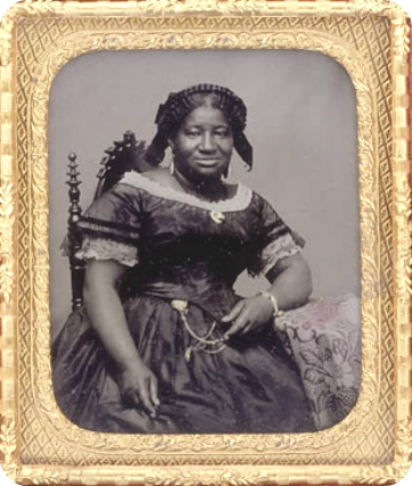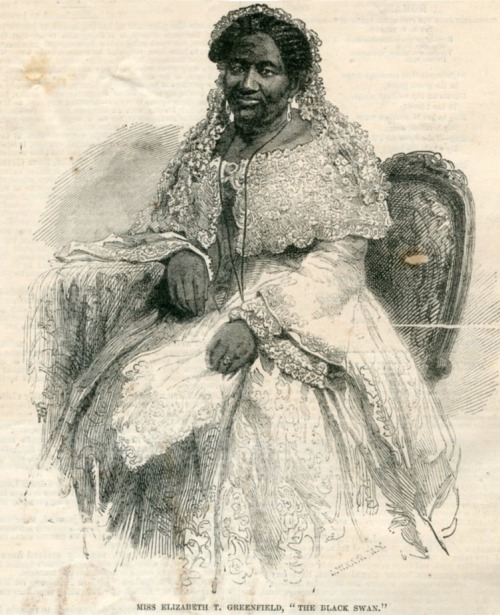Her recognition as a prolific singer by the white community at the time when several blacks were still suffering under the weight of slavery, made her the first African-American woman to become a successful and professional singer and a pioneer of diversity in the performance circle worldwide.
In 1851, after a giving a stellar performance in Buffalo, New York, Elizabeth Greenfield Taylor was named the Black Swan by several top-notch newspapers. The nickname became a household name which likened Elizabeth to the white Swedish opera singer Jenny Lind.

Elizabeth was abandoned by her mother, Anna Greenfield in 1831 after gaining her freedom from her owner Holliday E. Greenfield who worked with the American Emancipation Society helping to send 18 former enslaved Africans to Liberia.
Anna, Elizabeth’s mother had decided to take the trip back to Liberia but left her daughter behind on August 2, 1831. Born in 1817, Elizabeth was only 14 years old when her mother left her behind. She was quickly adopted by her mother’s former owner who moved with her to Philadelphia from Mississippi.
Elizabeth was offered education by her new family and lived to see how blacks suffered segregation and slavery experiencing a lot of racism herself as well. While schooling, Elizabeth worked as Mrs Holliday’s personal caretaker and housemaid.
It was while she was schooling at Clarkson School, a private prestigious school run by Quakers that she discovered her love for music. Unfortunately for Elizabeth, no white tutor accepted her into their music class but this did not discourage the young woman who went on to teach herself. With time and dedication, she taught herself how to sing, play the guitar, harp and the piano.

After finishing school, she taught music for more than 4 years and later became a private performer at parties and programs by 1950. Although she was black, Elizabeth was allowed to perform at prestigious white events because she was undeniably good. She shot to fame in 1951 when she performed at the Buffalo Musical Association. Right after that, she went on a U.S. tour for two years between 1851 and 1853.
One of her most prolific performances was at the Metropolitan Hall, New York where she performed for 4,000 whites as blacks were not allowed into the hall. Soon after, she held a special concert for blacks and all the benefits went to the Colored Orphan Asylum and the Home of Aged Colored Persons.
It didn’t take long for Elizabeth’s name to reach Europe and in April of 1853, she was invited by the Duchess of Sutherland and she performed for her.
Elizabeth caught Queen Victoria’s attention and was hosted in the Palace while being trained by the Queen’s organist to perform for the Queen.

On May 10, 1854, Elizabeth made history as the first African American to perform before the Queen and British Royalty which helped her embark on a successful Europe tour before going back to the U.S.A for another tour.
Despite her huge success, Elizabeth suffered great racism. According to Song of the lark, she received a lot of negative reviews and backlash from the white community. Several reporters claimed that while people enjoyed her performance, they had to close their eyes because she was not pleasant to the eye. Several white women also spoke about her ugliness and fashion taste and she constantly received hate-letters.
Despite all this, Elizabeth had a successful career and paved the way for several other black performers. In the 1860s, she created and directed her own opera troupe.
Due to her career, she did not marry or have kids and died of a sudden Paralysis on March 31, 1876. A tribute for her was written in the New York Times and she was buried in Philadelphia.










